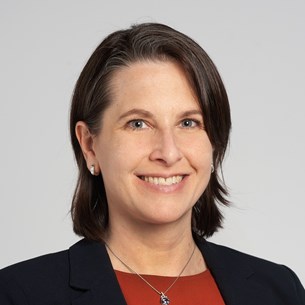Meeting
2022 ASCO Quality Care Symposium

Cleveland Clinic Foundation, Taussig Cancer Center, Cleveland, OH
Heather McKee Hurwitz, NaSheema Anderson, Kate McCaffrey, Pamela Combs, Raymond D. Jackson, Sarah S Kilic, Markayla Mariner, Tiffany Onger, Kimberly Sanders, Tyler Stimpert, Jeremy Suwarna, Jeremy Weleff, Chirag S. Shah
Background: While incidence rates of cancer are lower among women experiencing homelessness (WEH), cancer mortality remains higher. Barriers to screening include economic, transportation, housing, childcare and other barriers. This study evaluates barriers to mammographic screening as part of a prospective program that provides onsite mammography services to WEH. Methods: Cleveland Clinic partnered with shelters to provide breast health education, patient navigation, and mobile mammograms onsite at shelters. Also, participants received a meal, a bra, and hygiene items. 75 women and persons of other genders completed a mammogram. 55 WEH participated in the study by completing a survey for a response rate of 73.3%. The survey included questions about barriers and demographics. We conducted a preliminary analysis to improve study quality and plan for a follow up study. Results: Participants were 40-75 years old and identified as American Indian/Alaska Native (5.5%), Black/African American (60%), and White (40%). 16% of participants received their first ever mammogram. 34% noted a family history of breast cancer and 22% had previously been advised to return for additional imaging. One participant was a breast cancer survivor. On average, participants’ last mammogram was four years prior with the greatest screening lapse being 18 years prior. A majority (n = 39, 70.9%) disagreed or strongly disagreed with the statement, “I’m afraid the mammogram will be painful.” Likewise, a majority (n = 46, 83.7%) disagreed or strongly disagreed with the statement, “I’m embarrassed about having a mammogram.” A majority (n = 44, 80.0%) also disagreed or strongly disagreed with the statement, “I’m busy and do not have time.” Almost all participants (n = 51, 96.2%) responded “yes” to the statement, “I believe in preventative care screenings.” However, participants’ responses to the statement, “I’m afraid of finding breast cancer” varied widely from strongly disagree (n = 7, 13.0%) and disagree (n = 10, 18.5%), to neutral (n = 15, 27.8%), to agree (n = 12, 22.2%) and strongly agree (n = 10, 18.5%). Conclusions: Our preliminary data shows that most participants believe in preventative screening, showing that novel services such as onsite mammography may address the lack of screening in this population. 40.7% of participants stated they are afraid of finding breast cancer, indicating this is a barrier to screening in the WEH population. Future research should explore reasons for fear (financial burden, mortality, lack of access to care, etc.) and why this may result in a lack of screening.
Disclaimer
This material on this page is ©2024 American Society of Clinical Oncology, all rights reserved. Licensing available upon request. For more information, please contact licensing@asco.org
2022 ASCO Quality Care Symposium
Poster Session
Poster Session A
Cost, Value, and Policy,Health Care Access, Equity, and Disparities,Patient Experience
Access to Timely Detection and Referral
J Clin Oncol 40, 2022 (suppl 28; abstr 111)
10.1200/JCO.2022.40.28_suppl.111
111
D10
Abstract Disclosures
2022 ASCO Annual Meeting
First Author: Sarah S Kilic
2021 ASCO Annual Meeting
First Author: Florence Lennie Wong
2024 ASCO Quality Care Symposium
First Author: Milan George
2024 ASCO Annual Meeting
First Author: Jennifer M Yeh